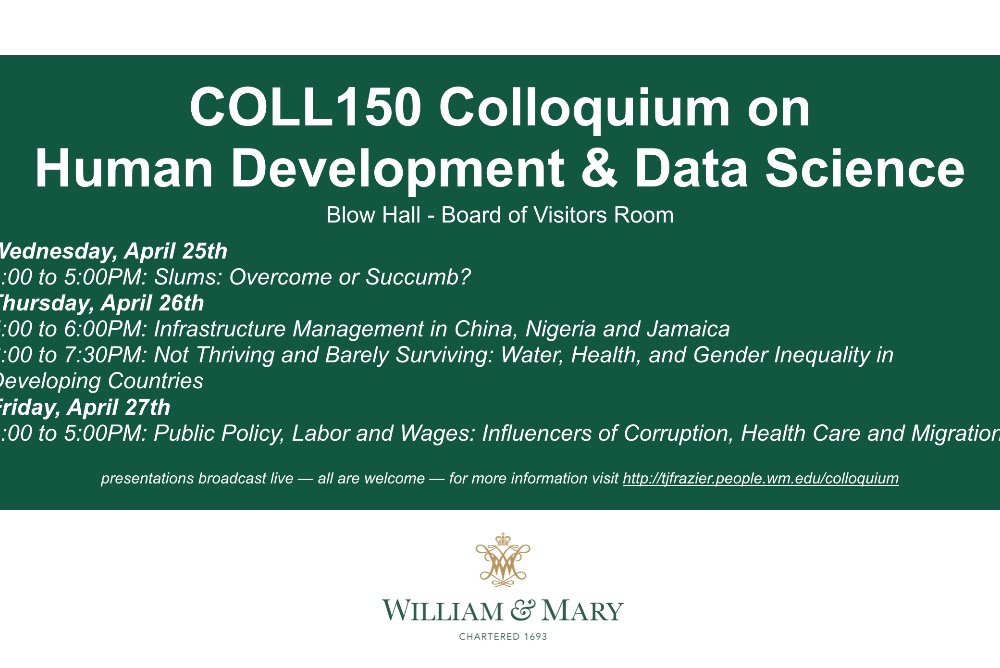W&M Featured Events
[PAST EVENT] Human Development & Data Science Colloquium - Slums: Overcome or Succumb?
Location
Blow Memorial Hall, Board of Visitors Room262 Richmond Rd
Williamsburg, VA 23185Map this location
Access & Features
- Open to the public

Slums: Overcome or Succumb?
Miguel Almirante, Ian Creelman, and Matthew Crittenden
As of 2017, nearly one billion people live in slums and this number is expected to double by 2030 as urban growth continues to rise steeply in the developing world (Ezeh 2017). Slums have ceased to be transitory dwellings for rural migrants seeking the economic benefits of urban jobs and instead have begun to resemble permanent poverty traps. Therefore, it is imperative to understand their origins and long-term ramifications before conditions worsen further. Our panel is divided into three research projects. The first topic of research focuses on slum development in the Philippines and how this leads to various inequalities in infrastructure, health, and effective government policies, each of which is a direct effect of the labor migration patterns within middle- and low-income countries. This leads us to analyze human development, spatial development, and government planning in the Philippines allowing us to question the causes and effects of labor migration in and around Metro Manila. The second research focus is an analysis of the correlation between the housing shortage and its effects on indoor air quality India. When the housing demand exceeds supply, illegal settlements arise along with a number of problems such as overcrowding, poor sanitation, lack of ventilation, use of pesticides and deplorable indoor air quality. Moving forward, our third research focus examines the difference between slums and traditional urban areas, positing that slum health cannot be understood as a sub-category of urban health and requires recognition as its own field. Our inquiry into Central America lays the foundation for early-stage research into the causal relationships between socioeconomic variables and health outcomes in slum and non-slum urban areas. Understanding these differences is crucial to developing better intervention strategies and government policy.
Contact
Tyler Frazier
